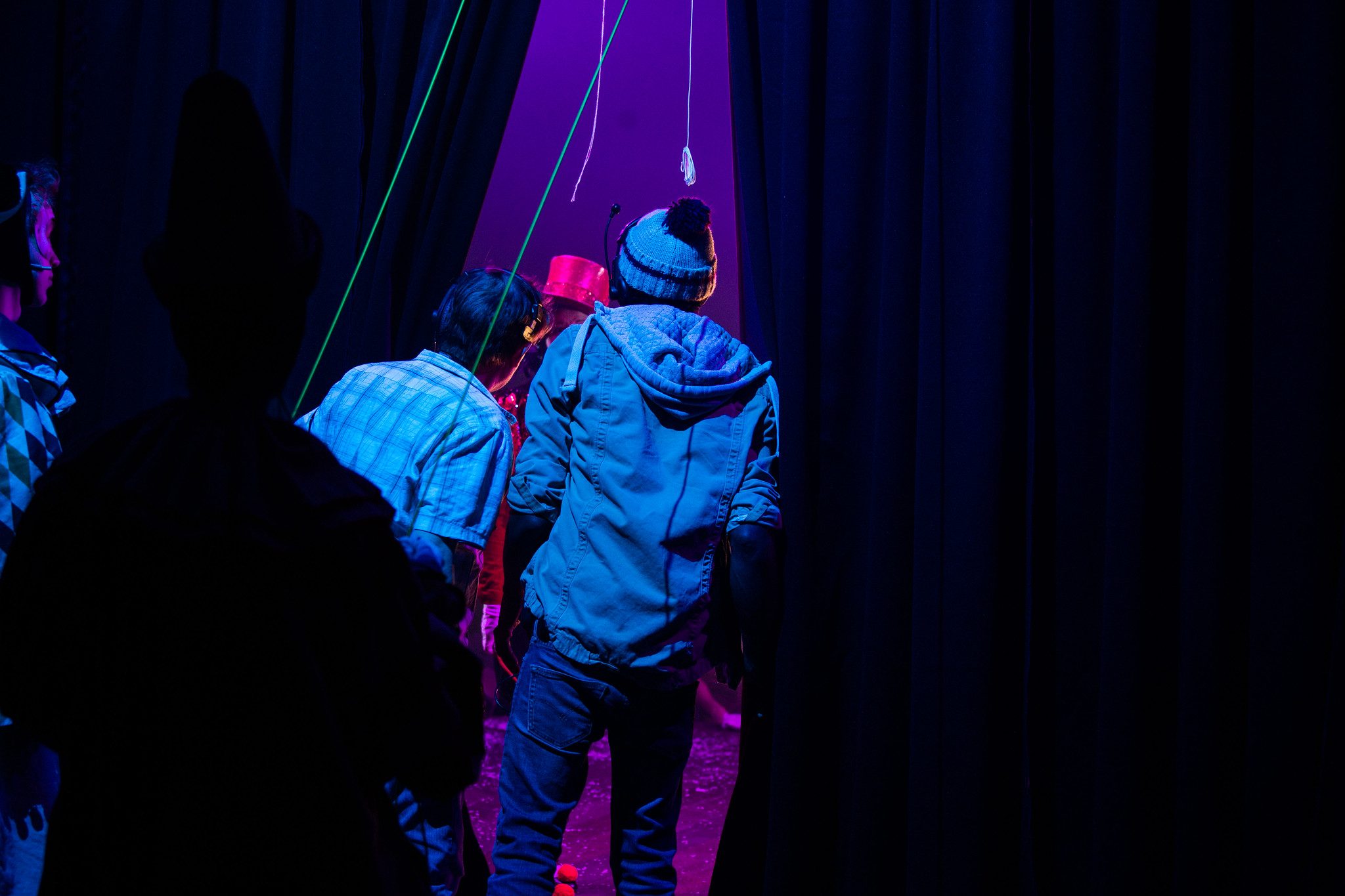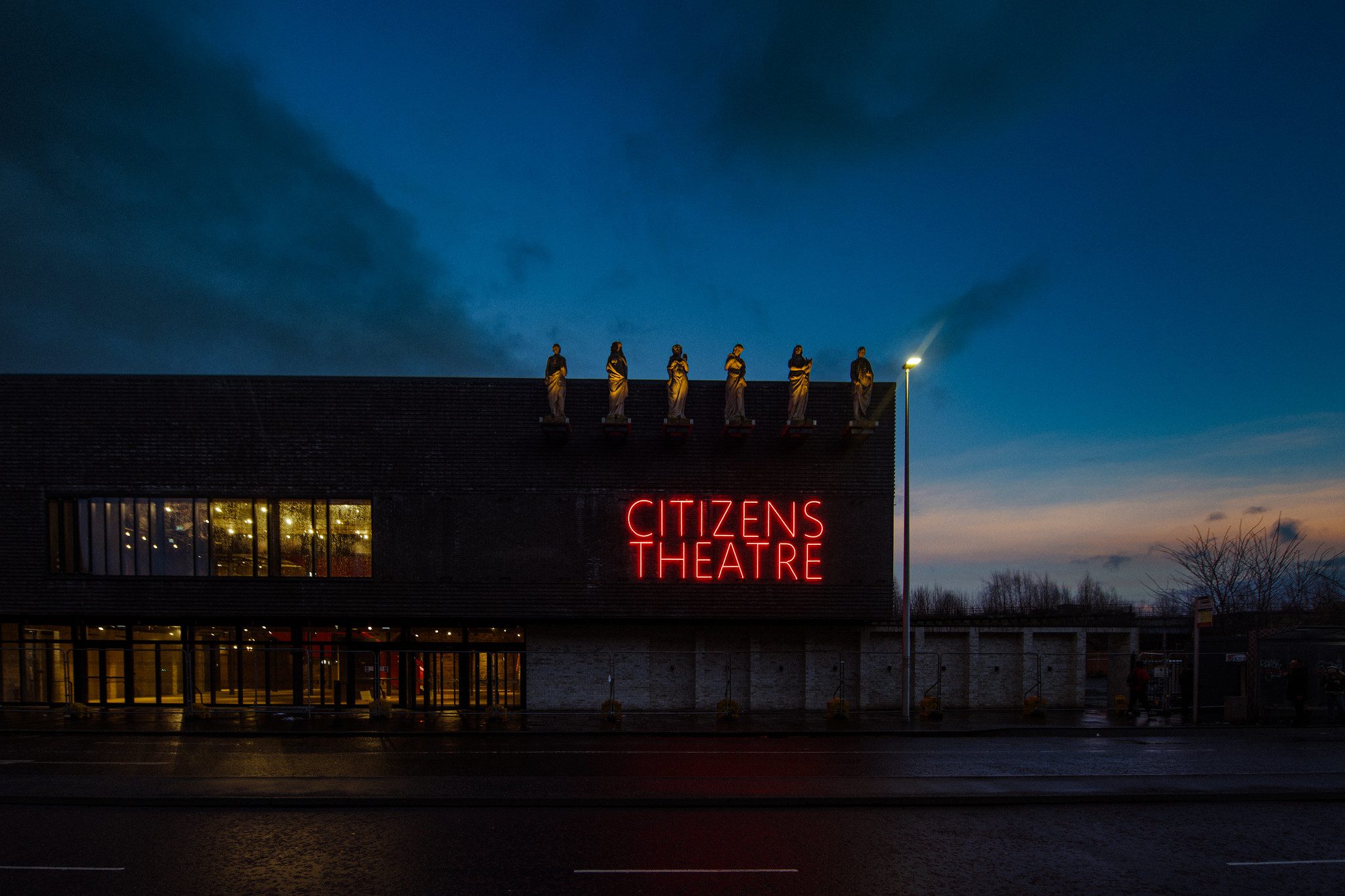- Our Citizens
Meet Barry Forde, Assistant Stage Manager
Find out more about working in Stage Management from Barry Forde, Assistant Stage Manager. We chatted to Barry about the essential qualities needed for this role – and he explained why it’s stage managers that run the show!
What is your job title?
I’m the Assistant Stage Manager at the Citizens Theatre. I’ve had this job for 16 years now, but that time has just flown by.
What does your role involve?
The stage management team is in control of the show! We oversee everything that happens in the rehearsal room and onstage, making sure that it all goes smoothly. Once the show has opened, it’s stage management that is responsible for the running of each evening’s performance. We ensure that the production continues to run with all aspects of it kept as directed and designed. We’re also responsible for sourcing all the props and furniture.

The stage management team is made up of four main roles, and everybody plays a key part:
- Company Stage Manager (CSM): They’re responsible for the health and safety of the Theatre and looking after the welfare of the cast. For example, they’ll book any doctor’s appointments for the actors and organise their accommodation and travel if needed.
- Stage Manager (SM): The SM oversees everything going on in the rehearsal room and onstage, communicating this to all the technical departments and the wider organisation.
- Deputy Stage Manager (DSM): During rehearsals, they are in the room alongside the director and actors. The DSM keeps an accurate record of choices that are made, things like blocking notes, prop movements and script changes. They’ll then pass on any changes to all relevant departments. During performances they give the cues for all sound and lighting effects, and set changes to happen.
- Assistant Stage Manager (ASM): This is me! As ASM, I do loads of different things to help make sure everyone’s jobs run smoothly. I manage the backstage area, making sure actors and crew are ready for their cues. I’ll also help with scenic changes and provide communication between the stage manager and the crew. During performances, I’ll be problem-solving on the go and dealing with any emergencies such as helping with a quick change or grabbing forgotten props.

Most rewarding and most difficult things about your job?
I really like watching the play evolve from start to finish. From reading the script for the first time, to listening to a read through and watching the production progress from first rehearsal to first show. It changes so much along the way, and different designers, directors, etc can introduce unexpected angles. I think it’s quite rare to be so involved in a project from start to finish, and I get to do that every few months!
Another thing I like is that each job is different, and so you’re always learning. As part of my role, I’m always having to immerse myself in a new world that I often know nothing about. With plays taking place in completely different settings and time periods, my research can go from Victorian London to witchcraft to dystopian futures. It’s endless!


While I love the variety, it is also one of the most challenging things about the job because it can feel like you’re starting new each time. This can be daunting. You are often working with a completely new team too, so you’re not just learning about the world of the play but also developing and maintaining new working relationships each time too.
Do you have a favourite show that you’ve worked on at the Citizens Theatre, and why?
I am a big fan of the 2012 production of Crime and Punishment. I think it’s an example of Dominic Hill at his very best. All the elements came together to create something spectacular. Using very little, none of the bells and whistles that you sometimes see, Dominic was able to create magical, expansive spaces.



What experience, qualifications or skills do you need to do your job?
I think a good stage manager needs to have good common sense, be able to stay calm under pressure and enjoy problem solving. You can learn the practical elements such as calling a show or writing a prompt book, but I think those three qualities are essential.
How did you start out?
I originally went to drama school and hated the experience! Although I learned that acting wasn’t for me, I knew I loved theatre and being around it. So, I went back to university and did a BA in Drama. It was a much more varied course with some acting, some backstage stuff, and a bit of theory too.
After graduating, I did bits and pieces backstage on friend’s productions. I got a year-long apprenticeship in Stage Management here at the Citizens Theatre. It was great because I was learning loads and being paid a salary. After the apprenticeship I worked as a freelancer for a few years, regularly at the Citz and with other Scottish theatres, before being offered the full-time role at the Citizens Theatre.

Do you have any advice for someone interested in a career in stage management?
Try to meet up with stage managers for a coffee and quick catch up. Building good relationships is key in this business so it’s great to get to know people in the industry. It also means when they’re putting a team together for their next project, you will be in their mind!
We’re getting ready to return to our building in 2025. What are you most excited about when the building reopens?
I can’t wait to just stand on the Main Stage and look out into the auditorium before a show opens, with the glowing bulbs shining back at me and the set behind me. While we’ve put on shows at other venues during the redevelopment, it always feels different and a little bit more special at the Citz.


- Our Citizens



